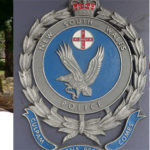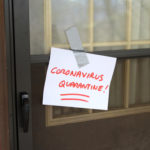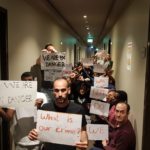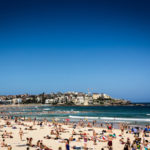The New Police Powers to Deal With COVID-19
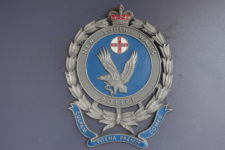
The NSW Police Force will have thousands of additional officers deployed on the streets enforcing new coronavirus social distancing rules and self-isolating requirements in an attempt, as NSW police minister David Elliot put it, “to kill this virus before it kills us”.
And as of 12 am on 26 March, NSW police officers have been able to issue fines for noncompliance with the coronavirus regulations. Individuals found to be breaching the COVID-19 prevention measures can be issued with a $1,000 fine, while businesses can be hit up for $5,000.
Distancing and isolation required
These new penalties apply to six public health orders imposed over recent weeks by NSW health minister Brad Hazzard that apply to the whole community. These have been issued under the provisions of section 7 of the Public Health Act 2010 (NSW) (the Act).
The minister issued his first public health order on 16 March. It relates to people who arrive back in the country from overseas having to “isolate themselves for a quarantine period of 14 days”.
Imposed on 20 March, the second order prohibits outdoor gatherings of over 500 people and indoor gathering of over 100. And it also stipulates that for gatherings under these parameters there must be at least a four squared metre allowance for each person attending.
And the third order, dated 23 March, outlines that non-essential venues must be closed to the public “except in limited circumstances”. These types of businesses include bars, entertainment venues and indoor sporting facilities. While restaurants and cafes are takeaway only.
Two orders were issued on 25 March. The first applies to those who have been diagnosed with COVID-19. On learning of their diagnosis, a person must immediately travel to the place they will stay during quarantine and remain there until cleared.
The second 25 March order relates to the stage two COVID restrictions imposed by the PM the day prior. It relates to many smaller venues ceasing operations, prohibitions on sporting activities, restrictions on weddings, funerals, hairdressers and childcare. And it also provides that government agencies can share information so as to protect the public during the pandemic.
There’s also a public health order relating to the closure of Lord Howe Island, dated 20 March.
Not only can you cop a fine for breaching these ministerial directions, but under section 10 of the Act, an individual contravening them can be imprisoned for up to 6 months and/or fined $11,000, while a corporation breaching the rules can be liable to pay a $55,000 fine.
The first COVID-19 infringement notices
By 10 pm on the evening the new infringement notices came into place, NSW police officers had already issued five COVID-related fines.
The first related to a Sydney Sussex Street massage parlour that was still open. The owner was slapped with a $5,000 fine and her three staff members, who were continuing to service the public, were issued with $1,000 fines.
Then there’s the case of a 65-year-old Lake Macquarie woman, who returned from a trip to Bali last Saturday night. And after being ordered to quarantine for 14 days, she’d already been warned about having breached these rules when she was found out in public last Monday.
But, on Thursday, police were tipped off about her having left her place of residence once more. Officers located her, took her into custody and returned her home, and then they issued her with one of the new $1,000 infringement notices.
Policing public health
On Tuesday night, right before the Berejiklian government closed down parliament until mid-September, a COVID emergency powers bill was passed, which, along with a suite of other new pandemic laws, provided NSW police with the power to enforce personal public health orders.
Section 62 of the Act provides that a person with a category 4 or 5 condition – COVID-19 is category 4 – can be placed on a public health order that can require them to refrain from certain activities, undergo treatment or, as would be the case with the coronavirus, self-isolate for at least two weeks.
New section 71A of the Act provides that police can arrest an individual suspected of breaching a COVID-19 public health order. And officers can then return them to the place where they’re isolating, or, in the case of a public health detainee, return them to their place of detention.
The emergency legislation also amended sections 112 and 118 of the Act to allow police to require a person suspected of having contravened a public health order to provide their name and address, as well as enabling officers to issue the new penalty notices in relation to breaching orders.
Sniff Off
However, despite the NSW Police Force having this new emphasis on policing COVID-19 restrictions in order to prevent widespread fatalities, it seems that it’s business as usual when it comes to one of its most highly derided practices, that being drug detection dog operations.
“The last record we have of a drug dog operation was on Thursday 26 March, which is weeks after the WHO labelled COVID-19 a pandemic,” Sniff Off spokesperson Xiaoran Shi told Sydney Criminal Lawyers. And she stressed that there’s been no mention of any plans to suspend the dogs for COVID.
Launched in 2011, Sniff Off is a collaboration between NSW Greens MLC David Shoebridge and the NSW Young Greens. The campaign aims to bring about an end to the warrantless use of drug dogs in public places.
“It’s disgusting that the Berejiklian government is wasting public money on confiscating a couple of joints at train stations, when those funds could be used to literally save lives,” Ms Shi made clear.
The social justice advocate added these funds could be better spent on “providing a safety net for workers made jobless by the lockdown or on much-needed medical supplies and hospital beds”.


